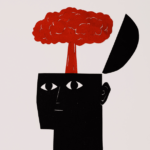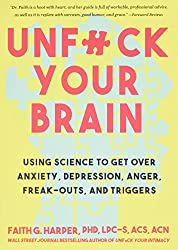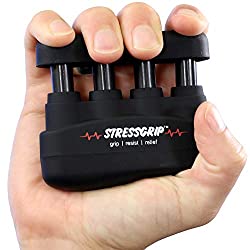Today, I want to talk about something that many of us have experienced at some point in our lives: burnout and when burnout leads to depression. It’s a feeling of physical, mental, and emotional exhaustion that can leave us feeling drained, overwhelmed, and disconnected. But did you know that prolonged burnout can sometimes lead to a deeper mental health challenge: depression? In this article, we’re going to explore the signs and symptoms of burnout, how it can relate to depression, and discuss some effective coping strategies to help you navigate through this challenging journey. So, let’s dive in and discover how to deal with burnout and protect our mental well-being!
Understanding Burnout and Its Connection to Depression
Before we delve into coping strategies, let’s first understand the relationship between burnout and depression. Burnout is a state of chronic exhaustion resulting from prolonged stress, often related to work or personal life. It can leave us feeling physically, emotionally, and mentally depleted. When burnout persists and isn’t effectively addressed, it can contribute to the development of depression. Depression is a mood disorder characterized by persistent feelings of sadness, hopelessness, and a loss of interest or pleasure in activities.
Recognizing the Signs and Symptoms
Both burnout and depression share some similar signs and symptoms, making it important to pay attention to our well-being. Here are some common signs to be aware of:
- Persistent exhaustion: Feeling tired despite getting enough rest and sleep.
- Loss of enjoyment: Experiencing a diminished interest or pleasure in activities you once enjoyed.
- Emotional struggles: Feeling sad, hopeless, irritable, or experiencing frequent mood swings.
- Difficulty concentrating: Struggling to focus, make decisions, or remember things.
- Physical symptoms: Experiencing changes in appetite, sleep disturbances, and unexplained aches or pains.
It’s essential to remember that while burnout and depression share similarities, they are distinct experiences. However, if you’re experiencing burnout symptoms that persist for an extended period and begin to interfere with your daily functioning, it’s important to seek professional help to explore the possibility of depression.
My Encounter with Burnout and Depression
Let me share a personal experience with you. A couple of years ago, I found myself overwhelmed by work and personal commitments. I pushed myself to the limit, ignoring the signs of burnout until it took a toll on my mental health. Prolonged burnout led me into a state of depression, where I experienced a profound sense of sadness, and loss of interest, and struggled with daily activities. Recognizing the need for support, I reached out to a mental health professional who provided guidance, therapy, and coping strategies. Through therapy, self-care, and implementing healthy lifestyle changes, I gradually recovered and regained my sense of well-being.
Coping Strategies: When Burnout Leads to Depression
Now that we understand the connection between burnout and depression, let’s focus on some coping strategies to help you navigate through this challenging journey. Remember, these strategies may vary for each person, and seeking professional guidance is always recommended.
1. Seek Professional Help
If you suspect that burnout has led to depression or if you’re experiencing prolonged and severe symptoms, it’s crucial to reach out to a mental health professional. They can provide an accurate diagnosis, offer appropriate treatment options, and guide you through the recovery process.
2. Prioritize Self-Care
Self-care becomes even more crucial when dealing with burnout and depression. Make time for activities that promote your well-being, such as engaging in hobbies, practicing mindfulness or meditation, and ensuring proper rest and nutrition. Take small steps each day to prioritize self-care and nurture your mind, body, and spirit.
3. Build a Supportive Network
Seek support from loved ones and build a network of understanding individuals who can offer a listening ear, empathy, and encouragement. Join support groups or connect with others who have experienced burnout or depression. Sharing your struggles and feelings can provide a sense of relief and remind you that you’re not alone on this journey.
4. Practice Mindfulness and Stress Reduction Techniques
Incorporate mindfulness and stress reduction techniques into your daily routine. This could include deep breathing exercises, meditation, gentle yoga, or journaling. These practices can help you manage stress, promote relaxation, and foster a sense of inner calm.
5. Set Realistic Expectations
Evaluate your expectations and establish realistic goals for yourself. Avoid overwhelming yourself with excessive workloads or high-pressure situations. Learn to delegate tasks, set boundaries, and focus on what truly matters.
6. Engage in Enjoyable Activities
Reconnect with activities that bring you joy and pleasure. Engage in hobbies, spend time in nature, listen to music, read books, or pursue creative outlets. These activities can provide a much-needed break from stress and help restore a sense of fulfillment and enjoyment in life.
Taking Steps Towards Recovery
Remember, my friend, burnout, and depression are significant challenges, but recovery is possible. By recognizing the signs and symptoms, seeking professional help, and implementing coping strategies, you can take the necessary steps toward recovery and regain your well-being. Be patient with yourself and trust that with time, support, and self-care, brighter days are ahead.
When burnout leads to depression, burnout also leads to recovery if taken good care of, just take care of yourself!
What coping strategies have you found effective in dealing with burnout and depression? Share your thoughts and experiences on our Facebook page!
About Personal Development & Self-Care Topic
Personal Development & Self-Care is a category dedicated to helping individuals improve their lives by focusing on mental, emotional, and physical well-being, and self-improvement through various techniques, practices, and tools.
Discover the power of mindfulness and self-care. Join our Body and Mind Recharge hub for tips and tricks. Sign up for free today!


























